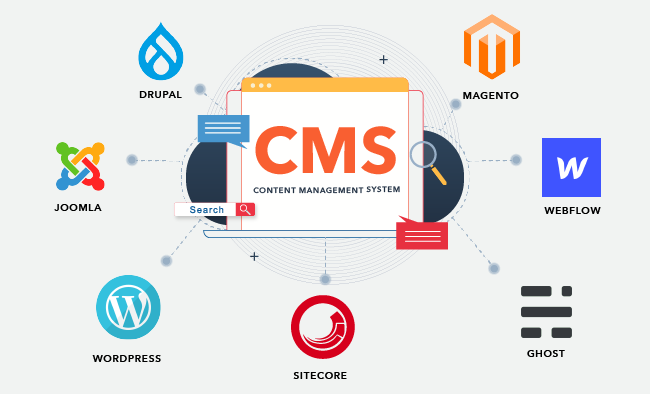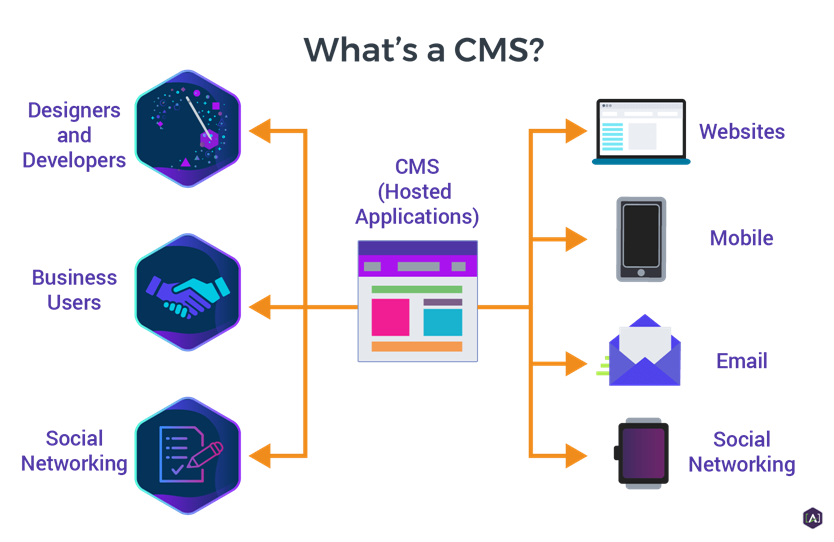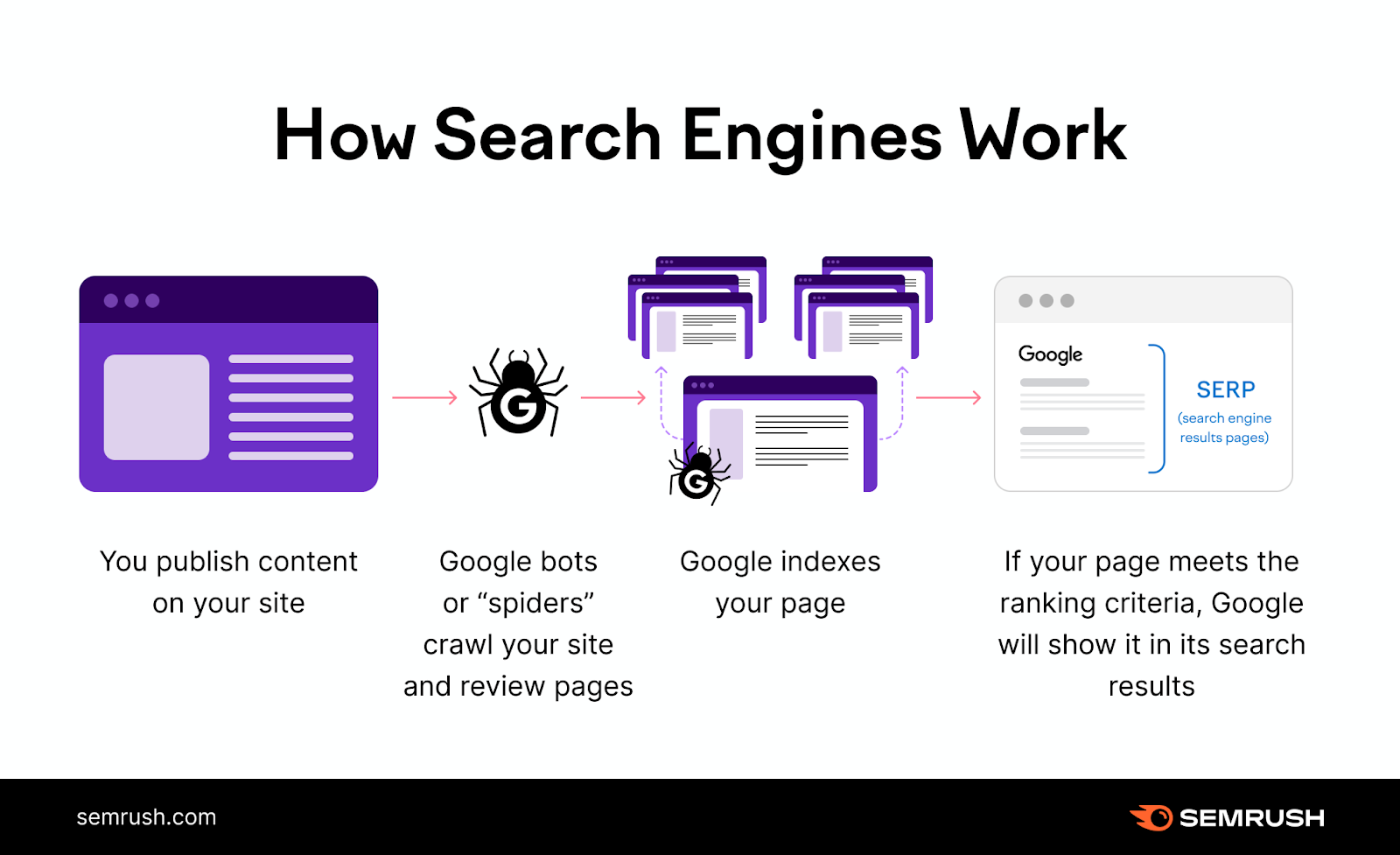I'm sure you've heard the word "CMS" before in your entire career in content marketing. Anyone who has incorporated content marketing into their plans is undoubtedly familiar with CMS or at least has a basic comprehension of it.
Every content marketing plan revolves around the CMS, or content management system, which is a fundamental, enhancing, and unavoidable component.
In this article:
- Understanding Content Management Systems
- Essential Advantages of Using a CMS
- My Top 3 Future Trends for CMS Technology

Despite their importance, many companies have yet to fully explore their CMS's potential.
There is a wealth of untapped possibilities to discover. Beyond their primary function of aiding in creating and publishing digital content, most businesses are unaware of the additional value they can provide.
Focusing solely on these primary functions limits the potential of enterprise content management systems, leaving a world of possibilities unexplored.
In this article, I’ll help you learn how an enterprise content management system (CMS) can revolutionize your content strategy, inspiring you to consider its implementation and transformative impact on your business.
Understanding Content Management Systems

Source: SimpleA
A content management system (CMS) enables users to create, organize, and distribute digital content.
In contrast to traditional approaches, which often require manual coding and file management, CMS platforms offer a user-friendly interface that lets users organize and update information without advanced technical expertise.
It democratizes the process by enabling a more collaborative approach and making content management accessible to non-technical individuals.
Essential Advantages of Using an Enterprise Content Management System
It’s simpler to create and edit content
One of a CMS's main advantages is its capacity to streamline content development and modification.
With user-friendly interfaces and WYSIWYG editors, users can quickly format text, insert images, and integrate videos.
WordPress, one of the most widely used CMS platforms, includes a block editor allowing drag-and-drop page building. This speeds up content creation and reduces developer involvement for routine updates.
You will have all your content in one place
A CMS centralizes all your content, making it easier to organize, search, and retrieve. This is particularly beneficial for large companies with extensive content libraries.
Teams can ensure consistency across channels by accessing the most recent versions of documents, images, and multimedia files.
Advanced CMSs also offer tagging, categorization, and metadata tools, enabling content organization by topic, keyword, or category.
This keeps your library structured and dramatically improves findability.
Workflows and collaborations are easier and faster
Teamwork is essential in content creation, and CMS platforms make collaboration seamless.
Most CMSs have workflow features that allow users to assign tasks, track progress, and collaborate in real time.
Version control ensures that multiple contributors can work on the same content without overwriting each other's changes.
Drupal, for example, includes complex workflow modules enabling automated content production, approval processes, and custom collaboration pipelines.
This ensures high-quality content that passes the necessary checks before publication.
You can improve your search engine ranking

Source: Semrush
SEO is essential for boosting organic traffic to your website.
Many CMS platforms include built-in SEO tools or plugins that help optimize your site, offering features like:
- XML sitemap generation
- Keyword recommendations
- Meta tag customization
- Readability analysis
- Content structure suggestions
For example, Yoast SEO for WordPress provides real-time SEO scoring and recommendations, helping authors optimize content efficiently.
You can have more flexibility and scale quickly
As your business grows, so does your content.
CMS platforms are also highly customizable, offering plugins and extensions to expand functionality.
Joomla, for example, includes thousands of extensions ranging from analytics to e-commerce.
This flexibility enables you to tailor your CMS to your business’s evolving needs.
My Top 3 Future Trends for CMS Technology

The CMS industry continues to evolve. Here are three major trends shaping the future:
- AI-Powered Content Creation
AI is rapidly being integrated into CMS platforms, offering smart recommendations, automated writing assistance, SEO optimization, and predictive analytics.
Learn more: AI in CMS - Headless CMS
A headless CMS separates the backend from the front-end display layer.
This gives businesses more flexibility to deliver content across mobile apps, websites, smart devices, and AR/VR environments. - Personalized Content Delivery
CMS platforms are enhancing personalization using user behavior data to deliver highly relevant, contextual content.
More here: Personalized content delivery
Final Thoughts
An enterprise content management system can offer many advantages and streamline your content creation and operational workflows.
With improved productivity, stronger collaboration, better SEO, and robust content security, your business can achieve its content marketing goals while building a strong online presence.
Are you ready to transform how you manage your content? Explore CMS platforms and unlock their full potential for your business.

Author Bio
Hey, it's Mick — Growth Marketing Manager at POWR.
My marketing career spans two decades, primarily in growth marketing in the healthcare industry, with additional experience in broadcast television, advertising, and copy editing.
I've owned 3 small businesses and sold all of them for a profit.
I studied journalism at the University of Louisiana – Monroe and remain a storyteller at heart.
My wife Elizabeth, son Gavin, and pup Jolene currently live in Lafayette, Louisiana.
Follow me on LinkedIn.

